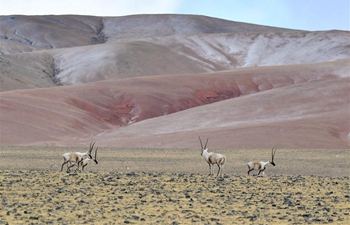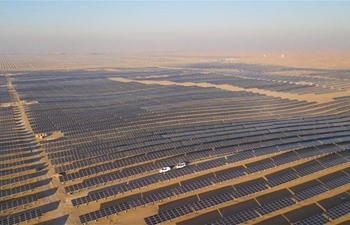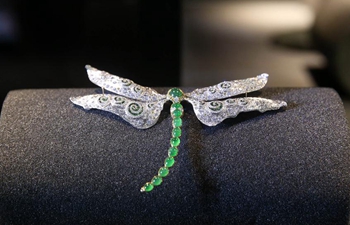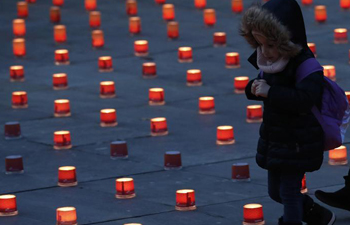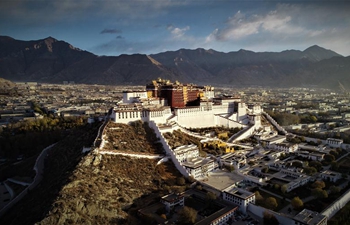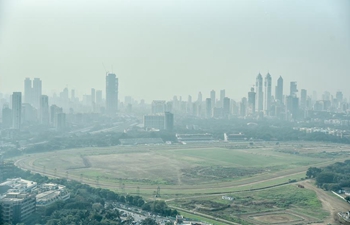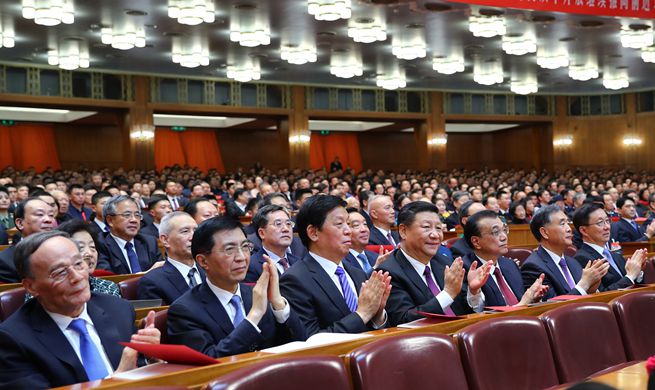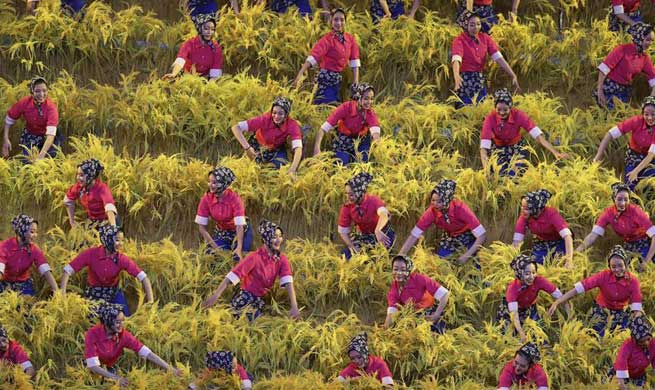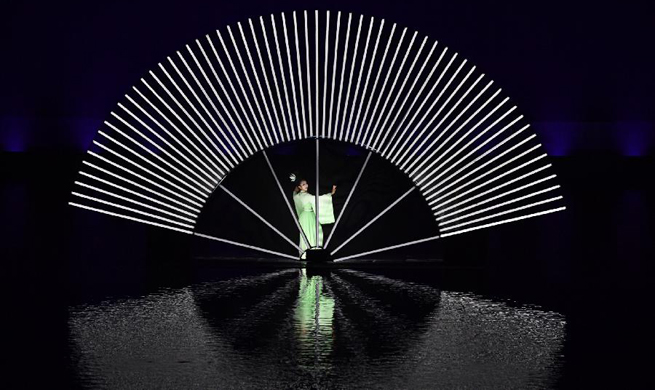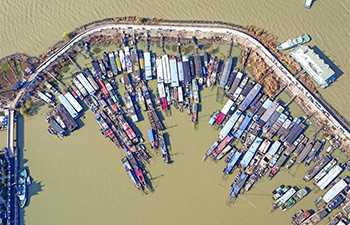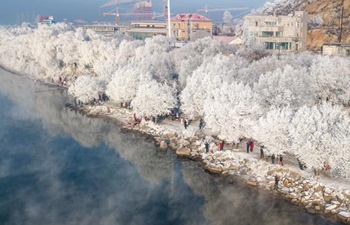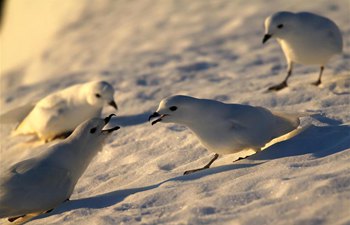By Tao Jun, Dong Hua
HO CHI MINH CITY, Dec. 16 (Xinhua) -- At nature-themed cafes in Vietnam, one of the world's major coffee exporters, customers not only sip coffee or smoothies, but can also play with domesticated or wild animals.
Inside the five-story Amix Coffee in Ho Chi Minh City's Tan Binh district, there are elegant spacious rooms with hundreds of carps, either as big as an adult's wrist or as small as a baby's finger, which freely swim in shallow water over their floors.
The rooms are furnished with dozens of bright wooden tables and stools on the floors and stylized trees and leaves on their walls.
"Saigon (the former name of Ho Chi Minh City) is hot or warm all the year round, so sitting here to drink ice coffee or fruit juices and touching graceful carps with hands or feet is very relaxing," Pham Mai Anh, a bank clerk said.
"I often take my little girl here after picking her up from her school, or come here with my friends at the weekend," the stylish young woman in a short black skirt smiled, bending down to gently catch a big golden carp. The carp and other fish, either red, yellow, white or black, seemed very calm, not trying to avoid the hands of customers or feet of waiters or waitresses.
"Our brown coffee (milk coffee) and matcha ice blended cream are selling very well because of their quality and reasonable prices. Just 35,000 Vietnamese dong (1.5 U.S. dollars) for the coffee, and 65,000 Vietnamese dong (2.8 U.S. dollars) for the cream. But for many customers, especially youths and kids, the biggest attraction is always the fish," waitress Le Thi Nhung told Xinhua recently.
Like Amix Coffee, Oromia Coffee in the city's district No.3, Oasis Coffee in Go Vap district, Arena Koi in district No.11, and Koi Land in Thu Duc district have large areas devoted to breeding Koi, colored varieties of the common carp. The fish are kept for decorative purposes in either outdoor or indoor ponds. At Arena Koi, customers can buy milk bottles to directly feed the big fish.
If pet lovers do not want their hands or legs to get wet when sipping coffee or eating cupcakes in fish cafes, they can go to Tokyo Pet Center in the city's Phu Nhuan district, or the Pet Ideal Café in district No. 6, to cuddle various species of cats and dogs, both Vietnamese and imported ones.
Tokyo Pet Center uses short tables and chairs without legs, making it convenient for customers to play with some dogs and dozens of cats, including particolored Vietnamese calico cats, furry Persian cats, short-haired American cats, and white Russian cats.
Dang Thu Hang, a customer, said drinks at Tokyo Pet Center are not very special, with price-tags ranging between 30,000-50,000 Vietnamese dong (1.3-2.2 U.S. dollars), but its good points include the pets being kept clean without any odor, and no surcharges for long stays.
"You can stay here all day although you only have to buy one drink. In Osaka (a Japanese city), the hometown of my husband, customers can stay in a cat café for only one hour after paying around nine U.S. dollars," Hang noted.
Those who prefer dogs to cats usually call in at Pet Ideal Café whose Siberian Husky, a medium-sized working dog breed that originated in Northeast Asia, will welcome them right at the entrance.
"I want to hug this kind of dog (Siberian Husky) because they look masculine with distinctive black and white markings on their faces, thickly furred double coat and erect triangular ears," university student Truong Trong Nghia said eagerly.
Meanwhile, his girlfriend had her eyes glued on a fluffy white Samoyed, a breed of large herding dog which takes its name from the Samoyedic people of Siberia. Not far from the Samoyed were other well-known dog species, including Chihuahuas, Poodles and Pomeranians, and several sleeping cats and hyperactive hamsters.
However, some residents of Ho Chi Minh City and visitors from other parts of Vietnam and foreign countries said that fish, dog or cat cafes are not rare in Vietnamese big cities like Hanoi, Ho Chi Minh City and Da Nang, and that they are interested in touching wild creatures such as snakes, basilisks, lizards, turtles and parrots.
"Most of the wild animals here are reptiles imported from South America," Ho Ngoc Thuy, owner of Babo Coffee in Tan Binh district said, noting that the cold-blooded reptiles look dangerous, but in fact they are tame and very gentle.
According to Thuy, most of the cafes in the past offered just a few kinds of drinks, mostly black and brown coffee, but now they have both diversified products and offer added value such as pets and exotic animals to satisfy customers whose living standards have improved considerably since Vietnam adopted "Doi Moi" (renewal) policy more than three decades ago.
"Now, customers' demands vary, not only for tasting, but also other senses such as seeing, hearing and touching," she said.
Vietnam's coffee sector currently contributes to some 2 percent of the country's gross domestic product (GDP) and 30 percent of its central highlands region's GDP, and creates over 2 million direct and indirect jobs, said vice chairman of the Vietnam Coffee and Cocoa Association Nguyen Nam Hai.
In the first 11 months of this year, Vietnam exported over 1.7 million tons of coffee beans and coffee products totaling nearly 3.3 billion U.S. dollars, posting respective year-on-year rises of 23 percent and 2.9 percent, Hai said.
